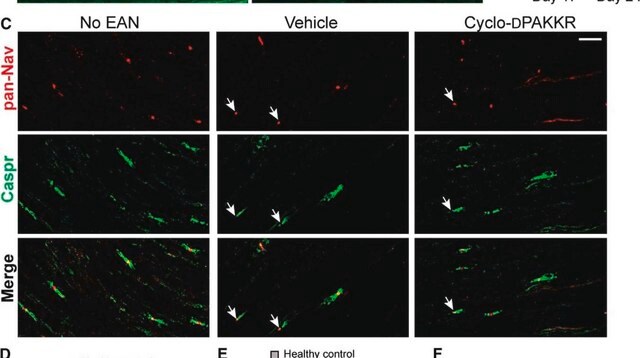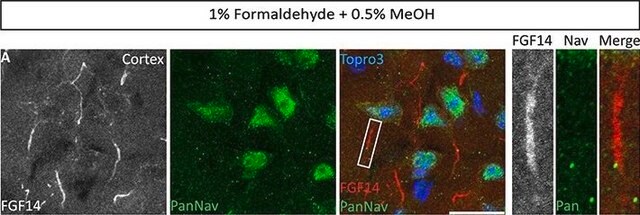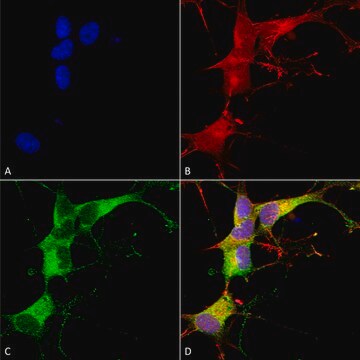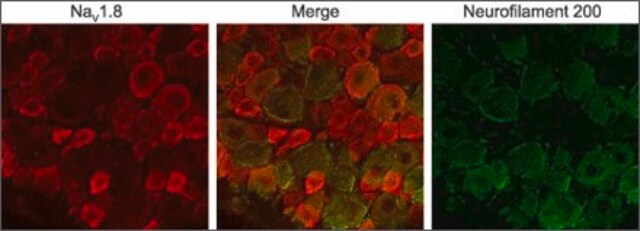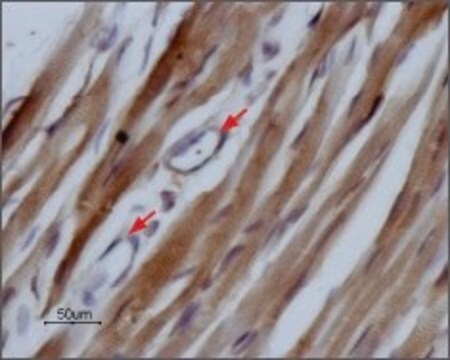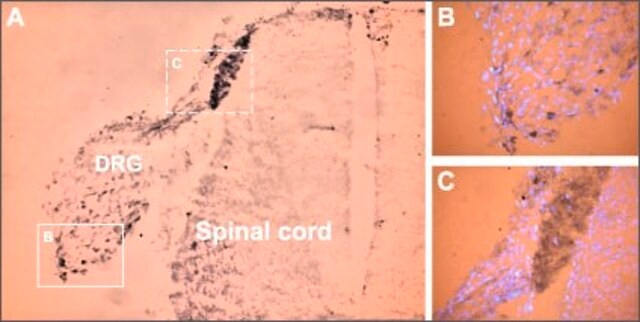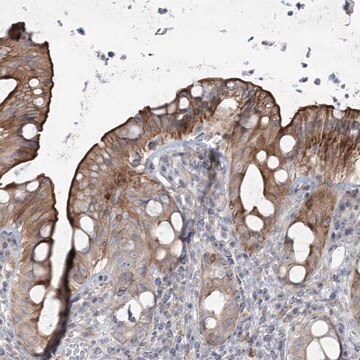S4936
Anti-Sodium Channel, Brain Type I (α subunit) antibody produced in rabbit
affinity isolated antibody, lyophilized powder
Sinónimos:
Anti-BI, Anti-SP11I, Anti-Scna1
About This Item
Productos recomendados
biological source
rabbit
Quality Level
conjugate
unconjugated
antibody form
affinity isolated antibody
antibody product type
primary antibodies
clone
polyclonal
form
lyophilized powder
species reactivity
rat, mouse
technique(s)
immunohistochemistry: suitable using rat brain section
western blot: 1:200 using rat brain membranes
UniProt accession no.
storage temp.
−20°C
Gene Information
mouse ... Scn1a(20265)
rat ... Scn1a(81574)
Categorías relacionadas
Immunogen
Physical form
Disclaimer
Not finding the right product?
Try our Herramienta de selección de productos.
signalword
Warning
hcodes
Hazard Classifications
Acute Tox. 4 Dermal - Acute Tox. 4 Oral - Aquatic Chronic 3
Storage Class
11 - Combustible Solids
wgk_germany
WGK 3
flash_point_f
Not applicable
flash_point_c
Not applicable
ppe
dust mask type N95 (US), Eyeshields, Faceshields, Gloves, type P2 (EN 143) respirator cartridges
Certificados de análisis (COA)
Busque Certificados de análisis (COA) introduciendo el número de lote del producto. Los números de lote se encuentran en la etiqueta del producto después de las palabras «Lot» o «Batch»
¿Ya tiene este producto?
Encuentre la documentación para los productos que ha comprado recientemente en la Biblioteca de documentos.
Nuestro equipo de científicos tiene experiencia en todas las áreas de investigación: Ciencias de la vida, Ciencia de los materiales, Síntesis química, Cromatografía, Analítica y muchas otras.
Póngase en contacto con el Servicio técnico